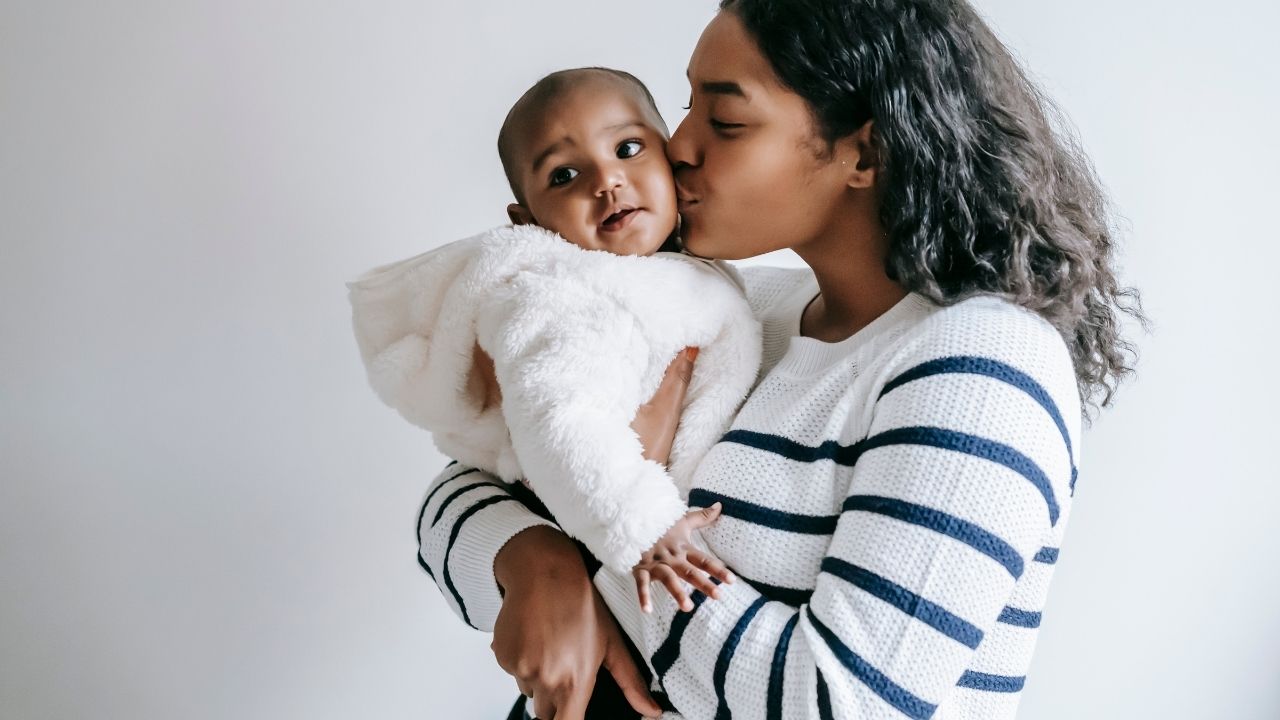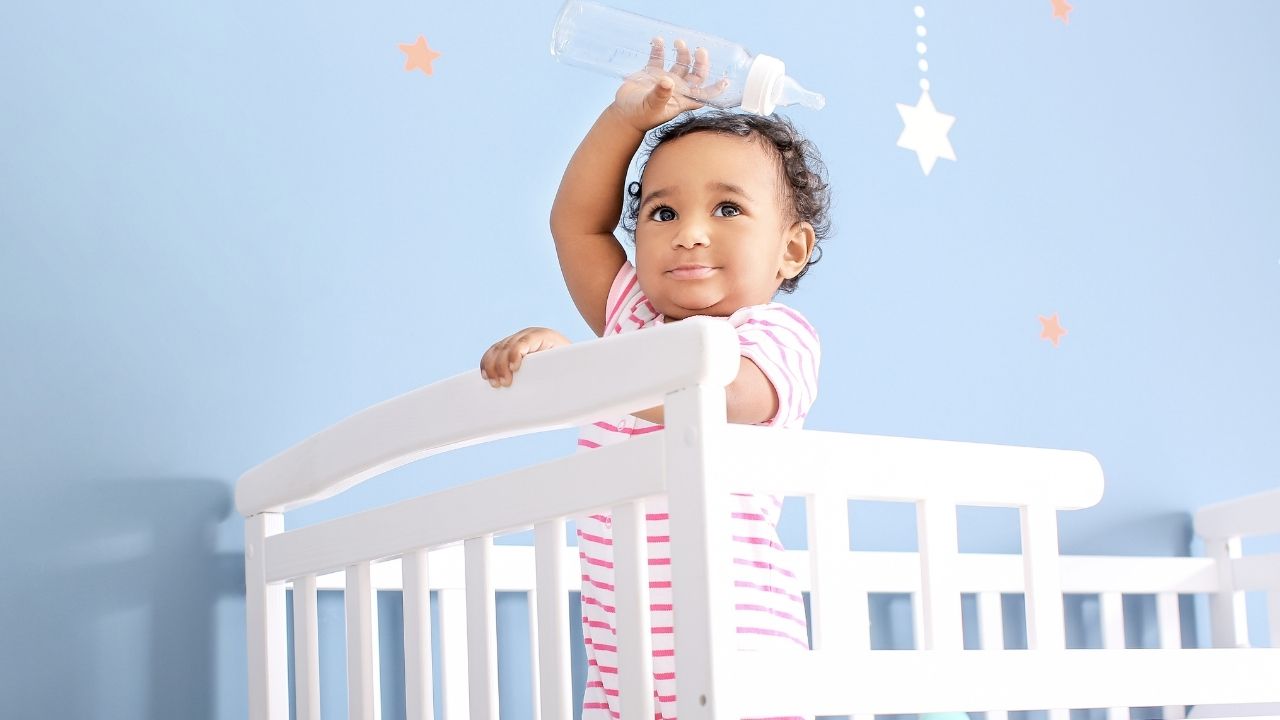Congratulations on becoming a new parent! As you embark on this exciting journey, you'll quickly realize that your baby is growing and changing every day. From their first smile to their first steps, your little one will hit numerous developmental milestones in the coming months and years. Keeping track of these milestones can be an incredibly rewarding experience for both you and your baby.
As a caring parent, it's natural to want to track your baby's progress and celebrate each achievement along the way. By doing so, you'll gain valuable insights into your child's unique personality and abilities while also providing them with the support they need to thrive. In this article, we'll explore some of the key developmental milestones that your baby will reach during their early years, as well as tips for tracking their progress and supporting their growth along the way. So let's get started!
Understanding Your Baby's Developmental Milestones
You're about to explore an incredible journey, discovering how your little one grows and develops over time. As a parent, it is essential to understand your baby's developmental milestones so that you can help them achieve their full potential. Early intervention plays a significant role in ensuring that your child reaches their developmental milestones on time.
Social development is one of the critical areas of your baby's growth. From as early as six weeks old, babies begin to smile in response to familiar faces and voices. Around four months old, they start engaging in social play by reaching out for objects and people around them. By six months old, they can recognize their caregivers and show excitement when they see them. It is crucial to support social development by providing opportunities for interaction with other people and toys appropriate for their age group. Motor skills, such as crawling and walking, also play a vital role in social development as they allow babies to explore their environment freely. Additionally, speech development should be closely monitored since communication is key to healthy relationships with people around them.

Tracking Your Baby's Progress
As your little one grows day by day, you'll be amazed at how much they will surprise you with their ever-evolving abilities. It's natural to want to keep track of these baby milestone memories and ensure that your child is progressing as expected. Fortunately, there are various tracking tools available to help you monitor your baby's progress.
Baby journals: These are books that allow parents to record important milestones such as first words, first steps, and other developmental achievements.
Growth charts: Pediatricians typically provide growth charts that help you track your baby's weight, height, and head circumference over time.
Developmental checklists: These lists provide parents with an overview of skills and behaviors babies should exhibit at different stages of development, helping them identify any potential issues early on.

By using these tools regularly, you can monitor your baby's progress and take note of any concerns or delays in their development so that you can discuss them with your pediatrician. This will not only give you peace of mind but also help ensure that your child receives the care they need to reach their full potential.
Celebrating Milestones with Your Baby
Let's talk about how you can encourage your baby's progress in reaching their milestones. It's important to remember that every baby develops at their own pace, so try not to compare them to other babies. Instead, focus on creating a supportive environment that allows your baby to explore and learn at their own speed.
Now let's discuss how you can make your baby's milestones memorable. Take lots of photos and videos, noting the date and milestone achieved. Consider creating a scrapbook or memory box filled with items that represent each milestone, such as a lock of hair from their first haircut or a onesie worn on the day they took their first steps. Celebrate each achievement with family and friends, making it a special moment for everyone involved.
Encouraging Progress
Now that your little one is growing and changing every day, it's important to find ways to celebrate their progress and encourage them along the way. One way to do this is by setting goals for your baby. These can be small or big accomplishments like rolling over, sitting up, or saying their first word. By setting achievable goals, you'll be able to track your baby's progress and celebrate each milestone they reach.

Positive reinforcement is also key in encouraging progress. When your baby accomplishes a goal, praise them with excitement and affection. They'll feel proud of themselves and will want to continue making progress. It's important to remember that every baby develops at their own pace so don't compare your child's milestones with others'. Celebrate the unique journey of growth that your little one is on.
As you continue tracking your baby's milestones and encouraging their progress, it's important to make each accomplishment memorable. In the next section, we'll discuss creative ways to document these special moments so that you can look back on them with joy for years to come!
Making Milestones Memorable
Capturing your little one's developmental achievements is like capturing fireflies in a jar - it's magical and fleeting, but with these tips, you can make sure those moments last forever. Creating keepsakes is one way to commemorate each milestone. From baby books and photo albums to personalized artwork and jewelry, there are endless options for preserving memories that will be cherished for years to come.
Another great way to make milestones memorable is by sharing them with family and friends. Whether it's through social media posts or video calls, allowing loved ones to share in the excitement of your baby's accomplishments can be incredibly rewarding. Plus, it helps create a support system for both you and your little one as they continue on their developmental journey.

When to Seek Professional Guidance
When it comes to monitoring your baby's milestones, there are certain red flags that should raise concerns. These can include delays in motor skills, lack of eye contact or social interaction, and difficulty with feeding or sleeping patterns. If you notice any of these signs, it is important to consult with your pediatrician who can provide guidance and support for your baby's development.
Red Flags to Watch For
It's important to keep an eye out for any warning signs that your little one might be struggling to reach their next big achievement. While every child develops at their own pace, there are certain red flags you should watch out for. For example, if your baby is not making eye contact or responding to sounds by three months old, it may indicate a developmental delay. Similarly, if they are not rolling over by six months or sitting up without support by nine months, it could also be cause for concern.
Other warning signs include difficulty with feeding or swallowing, lack of interest in toys or people around them, and consistently missing milestones across multiple areas of development. If you notice any of these red flags in your baby's progress towards their milestones, it's important to consult with your pediatrician as soon as possible. They can help determine if there is a developmental delay and provide guidance on next steps such as early intervention services or therapy to help your little one catch up and thrive.
Consulting with Your Pediatrician
Make sure you consult with your pediatrician if you notice any red flags in your little one's progress towards their developmental milestones, as they can help determine if there is a delay and provide guidance on next steps to help them catch up and thrive. Importance of communication between parents and the pediatrician cannot be overstated. By building a strong relationship with your child's doctor, both parties will be better equipped to identify potential concerns early on and work together to address them.

Keep in mind that every child develops at their own pace, so it's important not to compare your baby's progress with others'. Your pediatrician will assess your baby's development based on benchmarks for their age range and offer personalized recommendations for supporting their growth and reaching milestones. In the next section, we'll discuss some practical ways you can support your baby's overall development.
Supporting Your Baby's Development
You can help your little one grow and learn by providing a supportive environment that encourages their development. Baby playtime is an excellent way to boost sensory development, stimulate their imagination, and improve their motor skills. By providing toys that appeal to all of the senses, you're helping your baby develop their cognitive abilities. Encourage them to reach for objects, roll over, crawl, or even stand up with assistance. As they become more mobile, continue playing games like "peek-a-boo" or "pat-a-cake" to promote social interaction.
A nutritious diet is also essential for supporting brain development in babies. Breast milk or formula provides the necessary nutrients for growth in the first year of life. After six months old, introduce solid foods slowly while being mindful of any food allergies or intolerances. Offer a variety of fruits and vegetables that are rich in vitamins and minerals vital for development. And don't forget about healthy fats found in foods like avocados and salmon! These fats support brain development and help your baby meet their energy needs as they become more active.
As you look ahead to developmental milestones beyond year one...

Looking Ahead: Developmental Milestones Beyond Year One
Now that you have a good understanding of how to support your baby's development in their first year, it's important to start thinking about the developmental milestones they will reach beyond year one. Toddler development is an exciting time full of growth and exploration, and preparing for these next stages can help ensure your child is ready for preschool and beyond.
Here are some key areas to focus on as your child approaches age two:
- Language development: Your toddler will continue to build their vocabulary and language skills through talking, reading, and singing.
- Social/emotional development: Your child will begin to develop stronger bonds with family members and friends, express emotions more clearly, and learn how to play cooperatively with others.
- Fine motor skills: Toddlers will work on refining their ability to hold a pencil or crayon, use utensils at mealtime, and complete simple puzzles or crafts.
- Gross motor skills: As toddlers become more active, they'll practice climbing stairs independently, running/jumping/hopping/balancing activities outdoors or indoors
- Self-help skills: As your toddler becomes more independent, they'll start practicing dressing themselves (with assistance), cleaning up toys after playtime or meals
By focusing on these areas of development early on in your child's life, you're helping them prepare for success both in school and in life. Remember that every child develops at their own pace - don't be too hard on yourself or your little one if progress seems slow at times. Just keep offering love and support as they grow!
Frequently Asked Questions
Can developmental milestones be different for each baby?
Every baby is unique, and this means that their developmental milestones can be different from one another. Individual differences play a significant role in how babies develop, and it's important to remember that there is no "right" or "wrong" way for your baby to reach these milestones. Cultural influences can also impact the pace at which your baby reaches certain milestones. For example, some cultures may encourage more physical activity early on, while others may prioritize language development. It's essential to keep an open mind and trust that your baby will reach their milestones in their own time. As a caregiver, it's crucial to provide a supportive environment that encourages exploration and growth without putting pressure on your little one to meet specific timelines.

How can parents help their baby reach developmental milestones?
As a parent, you play a crucial role in helping your baby reach their developmental milestones. Parental involvement is key, and there are many early intervention strategies that can aid in your child's progress. One important way to help your baby develop is through engaging in activities that stimulate their senses, such as reading books with bright colors and textures or listening to music together. It's also essential to provide opportunities for physical activity, like tummy time or crawling practice. Additionally, seeking professional guidance from pediatricians or early childhood development specialists can be helpful in identifying any potential delays and addressing them promptly. Remember, every child develops at their own pace, so be patient and supportive throughout the process.
What are some factors that may delay a baby's developmental milestones?
You know what's ironic? As a parent, you spend nine months excitedly waiting for your baby to arrive and then suddenly you're counting down the days until they hit their developmental milestones. Unfortunately, not all babies reach these milestones at the same time. Some factors that may delay their progress include environmental factors like lack of stimulation or poor nutrition, as well as genetic factors such as inherited conditions or chromosomal abnormalities. But don't worry; there are plenty of resources available to help you identify any potential delays and work with your healthcare provider to intervene early on. Remember, every baby develops at their own pace, so try not to compare them with others and focus on being supportive in their unique journey towards growth and development.
Are there any resources available for parents to track their baby's milestones?
As a parent, you want to make sure that your baby is meeting all of their developmental milestones. Fortunately, there are many online trackers and milestone apps available to help you keep track of your baby's progress. These resources provide valuable information about what to expect at each stage of development, as well as tips for how to support your baby's growth and learning. By using these tools, you can feel confident that your baby is on track and getting the support they need to thrive. So don't hesitate to explore the many options available and find the one that works best for you and your little one!
How can parents celebrate their baby's milestones in a meaningful way?
You've watched your baby grow from a helpless little bundle into a tiny human with their own personality and quirks. And now, as they reach important milestones like first words and steps, you may be wondering how to celebrate these moments in a meaningful way. Sure, you could take the typical route of snapping some photos or posting on social media, but why not get creative? Consider starting celebratory rituals that are unique to your family, like having a special dance party every time your little one reaches a new milestone. And don't forget about creative milestone documentation! Instead of just writing down dates in a notebook, try creating art pieces together that symbolize each accomplishment. With a little imagination and effort, you can make these milestones even more memorable for both you and your baby.

Conclusion
Congratulations, you have reached the end of this exciting journey! Remember that tracking your baby's developmental milestones can be a fun and rewarding experience. Celebrate each new achievement with enthusiasm and take pride in the progress your little one is making.
Remember to support your baby's development by providing plenty of love, attention, and opportunities for exploration. And if you ever have concerns about your baby's progress, don't hesitate to seek professional guidance.
As you continue on this journey, keep in mind that there are many more milestones to come beyond year one. From first words to first friendships, every stage of your child's development is filled with wonder and amazement. Enjoy the ride!
.png)





